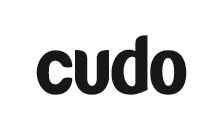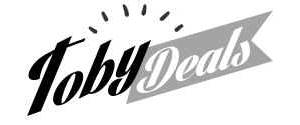Deals Combined From:








Deals Combined From:








We've have been working on Deals Combined since early July 2018, and this is all in our spare time. We both have full time jobs so we find time whenever we can. It's the dream of many people in IT to run a website on the side that creates some money, and we are no exception. This article is about the things I think have helped make this a success so far. Obviously it is not earning enough money to replace a day job, but it is a promising start especially for such a young website.
The Deals Combined business model is quite simple. We show links to products that are discounted, and our partners pay us a commission when we make a sale. These commissions at first seem small, ranging from 2 - 4%, whereas in some industries, such as epublishing, commissions can be as high as 75%. However the good news is that some of the products are expensive, such as laptops for $2000, which yield a $80 commission. And across all products we are promoting brand names, such as Dell or Groupon so people are more happy to buy them than some $100 eBook by a marketer they have never heard of.
Let's go through some tips I would give for success:
It sounds obvious but it's not always easy. When there are two things to do, one is exciting and creative and the other is dull an repeatitive, it is naturaly to want to do the exciting thing. However with a side hussle the question that constantly needs to be in your mind is "of all the things I can do now, what brings me closer to the money?". I don't think you will go far wrong if you evaluate all that you do with that lens. Sometimes there are other constraints. For example you may want to do SEO first as it takes a while for SEO to take effect, and then concentrate on other marketing efforts later. But in general "show me the money" is a good way to go.
Often, especially for tech people like me, it can be tempted to add some interesting code, or over engineer a problem that can be quickly hacked together. This is very different from programming in a day job. In a day job you typically are working on an established product. Quality control and good program practices to make the code team-friendly are important. You probably have customers and aren't trying to make your first dollar. You might spend time on unit tests, refactoring and continuous integration.
For a side hussle, you want to get something live as quick as possible. It can't be a flaming pile of turd though! If it breaks every 5 minutes that is no good. However it just needs to be good enough. That is why I am using Javascript for all of the pipeline of extracting deals, formatting HTML, and searching on the site. I am familiar with JS and it has an amazing ecosystem to quickly grab in any packages I need to do most things you can imagine wanting to do on a website. I could use a "cool" or "fun" language, like Rust or Haskell, but that will slow me down as I am not used to coding in them, and the packages available to them will be less than for JavaScript.
My partner did a course on Udacity to learn about digital marketing. The course is long and took a lot of effort to complete, including the assignments. Much of it is pretty boring and obvious. Some of it is quite new and interesting. However doing this course gave her a good groundwork to make decisions on how to market this site.
Our initial marketing strategy is SEO. Being on the technical side I read a book focused more in the technical SEO, and this convinced me to make the site fast above all else as this is an easy way to get an advantage in Google when many sites don't bother to be fast. This in turn drove a lot of the technical decisions, such as to generate the site using static files rather than using a framework like Ruby on Rails. This also drove a lot of the work we did on making sure we have good original content, and make good use of basic SEO practices.
The book I read says "SEO is a solved problem" and I took this to heart. There is nothing magical about SEO - the "Black Hat' and "White Hat" tropes might make you think there are wizards doing this, but it boils down to some pretty boring step by step actions. There is some luck involved - but most of that is luck you make for yourself.
SEO has worked wonders for the site, because there is nothing like a person who is searching for a product or a solution in Google. They are the most motivated of buyers, because they are past the thinking/decision stages and are now ready for whatever reason to buy. Just putting the product in front of these people leads them to buy.
Digital Marketing is of course much more than SEO. I'm not going to go through what it is here, but you can checkout the udacity course here.
It's like when you join a Gym. The first month you are super motivated, even though that is the month you'll see the least results because you are just getting started. But the motivation comes from that initial spark, plus the slightly ligher waller from the gym membership and perhaps the excitment of using a new gym and all the equiptment. However as we know (and the Gyms do too!) eventually you'll get fed up, hardly turn up, and keep paying the fee anyway. That's why they try to lock you in for 12 months whne you are super motivated.
With a side hussle it is the same. It is most fun at the start, ironically when you make $0. Once you make the first $10 that is exciting too. But when you make another $10 it's less exciting, espeically if it took say another week. You might start thinking (oh I spent hour and just another $10, better of working in Macdonalds!). However this is the stage to keep pushing through. With a good marketing plan (based on learning marketing) and these initial sales as proof that the concept works, this is the time you should be most sure of you idea - it is more proven than when you started.
It might take weeks or months to get the site to the point where it makes a lot of money. During that time you are waithing for Google to get more traffic to you, and you are also learning from past mistakes and tuning and making things better. This learning can be used on future side hussles. This is the point where you are really making money - it just hasn't necessarily shown up in your bank account quite yet. Because if you fail, you start the next idea with better inforamtion and that idea will probably do better. But you don't lose, as long as you don't quit.
Silicon valley has the concept of "Runway" which is the amount of time you can keep a company going that is yet to make profit until it runs out of investor money and has to shut down. The same concept applies to a side hussle too. If you have a project that needs $1000 a month in hosting fees, and that is coming out out of your savings, there might be a limit of how long you can afford to keep it going before a forced shutdown. If you start a physical store that requires $100000 of investment, then if you fail, you are now $100000 poorer for the next idea.
If you have an idea that costs $50 or so a month or less to run, it is likely you can keep the idea going for years until it takes off. You can afford to be patient, you can afford to be sick for a month and not work on it and then come back. You can afford to wait for SEO to take effect.
However don't fall in the trap of trying to spend nothing at all. Sure there are a lot of good free services out there, and you should take advantage of them. However, if not paying $50 for something means you spend hours more than you need to, or you miss out on a competitive edge then it's not worth it. Spend a few dollars for things valuable to your business, even before you start to make money. Counting the pennies too early on could kill your idea in the bud.